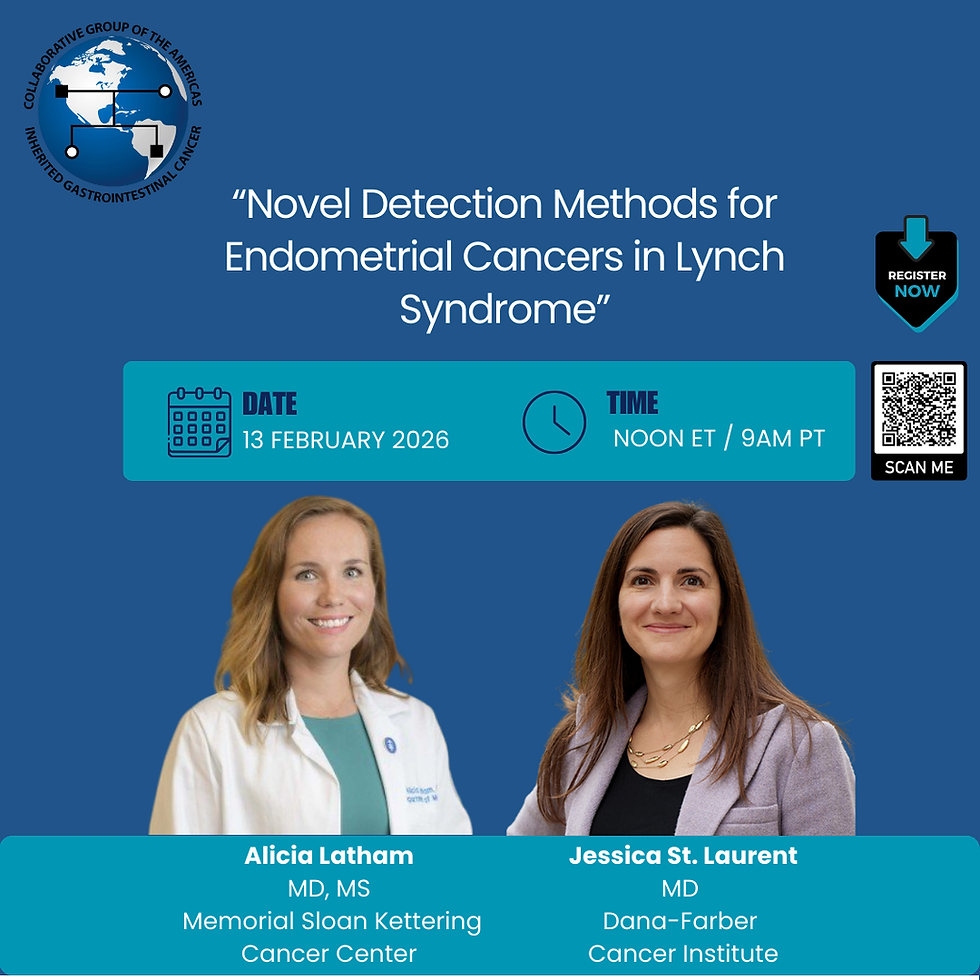Understanding Barriers to Genetic Testing in Asian Families: New Research Reveals Key Insights
- CGA-IGC
- May 29, 2025
- 3 min read
Chandrika Kurpad, MS, LCGC - Communications Committee member

A study published in the Journal of Genetic Counseling sheds light on why Asian families may have lower rates of cascade genetic testing for hereditary cancer risks. The research, led by Dr. Leena Tran and colleagues, offers valuable insights for healthcare providers working with diverse populations.
Read the full study: Family health beliefs and cascade genetic testing in Asian families with hereditary cancer risk: "Okay, now what?"
The Study at a Glance
Researchers conducted in-depth interviews with 16 Asian individuals who tested positive for pathogenic variants in cancer-related genes (ATM, BRCA1, BRCA2, CHEK2, or PALB2). Most participants were highly educated, first-generation immigrants from East or Southeast Asia, and the first in their families to undergo genetic testing.
Key Findings: Three Major Themes
1. Family Health Beliefs Drive Testing Decisions
The study revealed that family members' beliefs about cancer significantly influenced their willingness to pursue genetic testing:
Low perceived risk: Many relatives believed cancer "won't happen to me," even when multiple family members had been affected.
Fatalistic attitudes: Some held beliefs that genetic testing couldn't prevent cancer, with one participant noting relatives would say "you can prevent breast cancer, but maybe when you're 60, you're going to get pancreatic cancer, colon cancer."
Generational differences: Younger generations were more receptive to testing, while older relatives were more resistant.
2. Communication Challenges After Testing
Sharing genetic test results had mixed effects on family communication:
Some families experienced improved health discussions.
Others faced increased tension, with relatives questioning the credibility of American healthcare.
Text messaging apps created barriers to meaningful conversation, making it difficult to gauge relatives' reactions.
3. Need for Better Provider Support
Participants identified specific ways genetic counselors could better prepare them for family discussions:
More accessible materials: Family letters written at appropriate literacy levels and translated into relatives' primary languages.
Practical information: Details about testing logistics and costs in other countries.
Anticipatory guidance: Preparation for various family reactions, including anxiety, defensiveness, or skepticism.
Implications for Healthcare Providers
The research suggests that genetic counselors should:
Create culturally tailored resources that account for different educational backgrounds and health literacy levels.
Provide specific guidance about genetic testing availability in patients' countries of origin.
Prepare patients for varied family reactions and offer strategies for effective communication.
Consider using role-play exercises to help patients practice difficult conversations.
The Bigger Picture
This study highlights the importance of understanding how cultural beliefs and family dynamics influence healthcare decisions. The Health Belief Model framework used in the research shows that perceived susceptibility, self-efficacy, and cultural attitudes all play crucial roles in whether family members pursue genetic testing.
For the Asian community specifically, factors like immigration history, acculturation level, and generational differences create unique challenges that require tailored approaches from healthcare providers.
Moving Forward
The researchers emphasize that while this study focused on Asian families, the findings may apply to other communities facing similar barriers. The key is recognizing that effective genetic counseling must go beyond simply providing information—it must address the complex web of beliefs, relationships, and cultural factors that influence health decisions.
As genetic testing becomes increasingly important for cancer prevention, risk reduction and treatment, understanding and addressing these barriers will be crucial for ensuring all families can benefit from these life-saving technologies.
This research represents an important step toward more inclusive and effective genetic counseling practices, ultimately helping to reduce health disparities and improve outcomes for diverse populations.
Citation: Tran, L., Young, J. L., Barton, C. M., Hodan, R., Hanson-Kahn, A., & Chun, N. (2025). Family health beliefs and cascade genetic testing in Asian families with hereditary cancer risk: "Okay, now what?". Journal of Genetic Counseling, 34, e1891. https://doi.org/10.1002/jgc4.1891




Comments